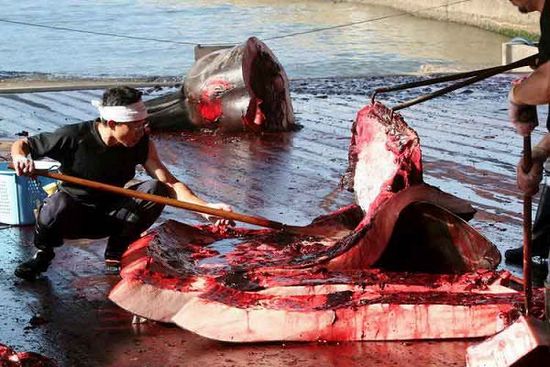Tradition and identity no excuse for killing dolphins
- By Ni Tao
 0 Comment(s)
0 Comment(s) Print
Print E-mail Shanghai Daily, January 30, 2014
E-mail Shanghai Daily, January 30, 2014
In a recent CNN interview, Japanese Prime Minister Shinzo Abe defended the traditional killing of dolphins, saying the annual hunting is part of Japanese culture and a way of life for fishermen.
|
|
Abe was responding to the remarks by Caroline Kennedy, US Ambassador to Japan, who criticized the savage slaughter of the mammals off the coast of Taiji, Japan. The killing season runs from September to March.
The issue first received global attention with the 2009 award-winning documentary “The Cove,” which depicted the bloody hunt of dolphins in a cove near the seaside village.
The killing process goes like this: After chasing migrating dolphins into the bay, fishermen startle the animals by creating a racket, sending them into panic.
Then begins the selection: the most intelligent ones are weeded from the group to be sold to aquariums, and a few are spared. The rest are indiscriminately hacked, slashed, or stabbed to death with harpoons or knives. Blood turns the seawater crimson. The carcasses are then sold at meat markets or to food companies for processing.
Since the documentary received global acclaim, the dolphin hunt has been relentlessly blasted from many quarters. But the Japanese have dug in their heels and refused to budge.
Shocked at the gruesome pictures of the carnage, many Chinese have joined global conservationists in slamming Japanese cruelty to animals, seemingly oblivious to the fact that some countrymen, famous for their gluttony for rare endangered species, have weakened their case for moral outrage.







Go to Forum >>0 Comment(s)